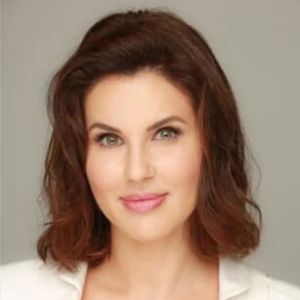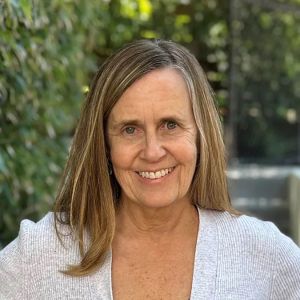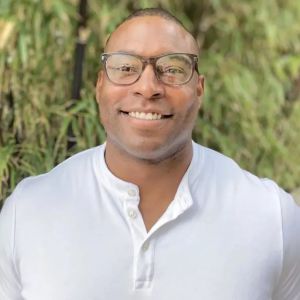






Amend Portshead House
Verified Center
This provider's information has been quality-checked by Recovery.com's Research Team for accuracy and completeness, including center verification through appropriate third-party organizations.
Treatment Focus
This center treats mental health conditions and co-occurring substance use. You receive collaborative, individualized treatment that addresses both issues for whole-person healing.
Primary Level of Care
Offering intensive care with 24/7 monitoring, residential treatment is typically 30 days and can cover multiple levels of care. Length can range from 14 to 90 days typically.
Treatment Focus
This center treats mental health conditions and co-occurring substance use. You receive collaborative, individualized treatment that addresses both issues for whole-person healing.
Primary Level of Care
Offering intensive care with 24/7 monitoring, residential treatment is typically 30 days and can cover multiple levels of care. Length can range from 14 to 90 days typically.
Provider's Policy
The majority of clients pay with cash/check/credit card. However, depending on your insurance provider and plan, you might be able to receive insurance coverage. We will gladly assist you in verifying out-of-network insurance benefits to help you make an informed decision about treatment.
Amend Portshead House
Amend Portshead House
About Amend Portshead House
Amend Portshead House provides upscale residential care that redefines treatment through deep clinical expertise and a personalized approach—within a broader continuum of care that includes a virtual intensive outpatient program. They support adults of all ages and genders facing complex trauma, depression, anxiety, post-traumatic stress disorder (PTSD), bipolar disorder, personality disorders, and co-occurring substance use. Set in an elegant home with private suites, gourmet dining, and holistic wellness, Amend provides an immersive path to lasting well-being and meaningful change.
Discover a Multifaceted Approach to Healing
Amend blends evidence-based and alternative therapies to meet each client’s needs in the areas of emotional, physical, family, social, and spiritual health. Clients benefit from relaxation techniques like massage and meditation to innovative approaches like ketamine-assisted therapy and deep transcranial magnetic stimulation (Deep TMS). Amend also integrates somatic and experiential therapies for clients who struggle to tune into their body and mind. Highly qualified practitioners facilitate art therapy, sound healing, music therapy, equine therapy, dance movement therapy, and personal training.
Rely on Skilled, Attentive Clinicians
Amend’s team of seasoned professionals includes a psychiatrist, psychologist, therapist, nurse, nutritionist, fitness coach, acupuncturist, and support staff who come together to treat the often unseen and intangible causes of addiction and mental health difficulties. Each client has 3 dedicated clinicians on their care team and receives 5 individual therapy sessions per week and a weekly psychiatry consultation.
Focus on Healing in a Coastal Sanctuary
Amend Portshead House feels like home, yet free of distractions so clients can concentrate on themselves. Each bedroom opens to a private patio or veranda, ideal for journaling or simply enjoying the fresh morning air and warm afternoon sun. The shared spaces—including the family room, living room, dining areas, and kitchen—all offer views of the surrounding yard and the ocean. An in-house chef prepares nutritious meals, and personal trainers support fitness goals.
Make a Successful Transition Home
Amend’s aftercare coordinator works closely with each client and their clinical team to craft a bespoke aftercare plan. A curated list of options tailored to the client’s needs empowers them to continue practicing the new behaviors, skills, and ways of being learned during treatment.
Highlights from the Center
Highlights
These highlights are provided by and paid for by the center.
Customized Treatment Plans
Perfect for Professionals
Master's and Doctoral Level Therapists
Boutique
Center Overview
Treatment Focus
This center treats mental health conditions and co-occurring substance use. You receive collaborative, individualized treatment that addresses both issues for whole-person healing.
Joint Commission Accredited
The Joint Commission accreditation is a voluntary, objective process that evaluates and accredits healthcare organizations (like treatment centers) based on performance standards designed to improve quality and safety for patients. To be accredited means the treatment center has been found to meet the Commission's standards for quality and safety in patient care.
Insurance Accepted
Cash Pay Rates
Estimated Cash Pay Rate
Center pricing can vary based on program and length of stay. Contact the center for more information. Recovery.com strives for price transparency so you can make an informed decision.
Luxury rehab centers offer a unique blend of luxurious amenities and high-quality treatment. From private suites to gourmet dining, personal trainers to spa treatments, these facilities provide a high level of comfort and discretion.

Meet Your Care Team

Dr. Mark Hrymoc
Psychiatrist
M.D.

Dr. Mark Gindi
Chief Psychiatrist
M.D

Shira Rebibo
Clinical Director
LMFT

Mandy Odren
Program Director
B.S

Dr. Liana Georgoulis
Psychological Testing and Diagnostics
Psy.D

Dr. Sylvia Martin
Psychological Testing
M.A, Psy.D.

Danny Martin
Therapist
M.A., LMFT

Alyssa Hackett
Therapist
M.A., AMFT

Elaina Farokhzad
Therapist

Daniel Gradias
Therapist
M.A., AMFT

Madeline Madison
Art Therapist
M.A., AMFT

Nick King
Therapist
MSW, ASW

Matthew Raymond-Goodman
Therapist
MA, AMFT

Tracie Hellberg
Head Program Nurse
RN

Inna Gore
Program Nurse
RN

Kaitlin Robinson
Guided Imagery
M.A., LMFT

Stephanie Lekkos
Sound Bath Practitioner

Chris Lang
Fitness Therapist
M.S. Exercise Psychology

Jayden Capilla
Program Coordinator

Whitney Powell
Program Coordinator

John McNeilly
Overnight Program Coordinator

Rozhan Banki
Lead Clinical Assistant
M.A

Alexandra Naiman
Lead Clinical Assistant

Matthew Levinson
Director of Hospitality & Executive Chef




Levels of Care






Your Care Options
Specializations
Personality Disorders
Personality disorders destabilize the way a person thinks, feels, and behaves. If untreated, they can undermine relationships and lead to severe distress.
ADHD, ADD
ADHD is a common mental health condition caused by dopamine imbalance. Common symptoms include inattention, hyperactivitiy, and impulsivity.
Bipolar
This mental health condition is characterized by extreme mood swings between depression, mania, and remission.
Burnout
Burnout entails mental and physical exhaustion, and leads to a severe lack of fulfillment. This condition is often caused by overwork.
Co-Occurring Disorders
A person with multiple mental health diagnoses, such as addiction and depression, has co-occurring disorders also called dual diagnosis.
Obsessive Compulsive Disorder (OCD)
OCD is characterized by intrusive and distressing thoughts that drive repetitive behaviors. This pattern disrupts daily life and relationships.
Post Traumatic Stress Disorder
PTSD is a long-term mental health issue caused by a disturbing event or events. Symptoms include anxiety, dissociation, flashbacks, and intrusive thoughts.
Self-Harm
The act of intentionally harming oneself, also called self-injury, is associated with mental health issues like depression.
Who We Treat
Older Adults
Addiction and mental health treatment caters to adults 55+ and the age-specific challenges that can come with recovery, wellness, and overall happiness.
Executives
Executive treatment programs typically directly support the needs of people who manage businesses and may provide flexible schedules and office space to allow work during treatment.
Young Adults
Emerging adults ages 18-25 receive treatment catered to the unique challenges of early adulthood, like college, risky behaviors, and vocational struggles.
LGBTQ+
Addiction and mental illnesses in the LGBTQ+ community must be treated with an affirming, safe, and relevant approach, which many centers provide.
Men and Women
Men and women attend treatment for addiction in a co-ed setting, going to therapy groups together to share experiences, struggles, and successes.
Midlife Adults
For adults ages 40+, treatment shifts to focus on the unique challenges, blocks, and risk factors of their age group, and unites peers in a similar community.
Professionals
Busy, high-ranking professionals get the personalized treatment they need with greater accommodations for work, privacy, and outside communication.
Approaches
Evidence-Based
A combination of scientifically rooted therapies and treatments make up evidence-based care, defined by their measured and proven results.
Family Involvement
Providers involve family in the treatment of their loved one through family therapy, visits, or both–because addiction is a family disease.
Individual Treatment
Individual care meets the needs of each patient, using personalized treatment to provide them the most relevant care and greatest chance of success.
Wellness
Wellness philosophies focus on the physical, mental, and spiritual wellness of each patient, helping them restore purpose with natural remedies.
Therapies
1-on-1 Counseling
Patient and therapist meet 1-on-1 to work through difficult emotions and behavioral challenges in a personal, private setting.
Play Therapy
This approach is commonly used with children. It incorporates elements of play and self-expression, like boardgames, finger painting, dolls, and blocks.
Trauma-Specific Therapy
This form of talk therapy addresses any childhood trauma at the root of a patient's current diagnosis.
Rational Emotive Behavior Therapy
A type of cognitive therapy that identifies negative self-defeating thoughts and behaviors, rewriting beliefs to be positive, empowering, and present.
Transcranial Magnetic Stimulation
Localized magnetic pulses stimulate areas of the brain to increase brain activity and reduce abnormal functions.
Mindfulness Therapy
This ancient practice can be mental, emotional, and even spiritual. In meditation, you focus your attention on the present moment without judgement.
Attachment-Based Family Therapy
ABFT is a trauma-focused therapy that teaches you to form healthy relationships by rebuilding trust and healing attachment issues formed in childhood.
Animal Therapy
Animals can inspire trust and self-worth. In this experiential therapy, guided interactions are used to improve social skills and emotion regulation.
Conditions We Treat
Pornography Addiction
A person with a porn addiction is emotionally dependent on pornography to the point that it interferes with their daily life and relationships.
Grief and Loss
Grief is a natural reaction to loss, but severe grief can interfere with your ability to function. You can get treatment for this condition.
Personality Disorders
Personality disorders destabilize the way a person thinks, feels, and behaves. If untreated, they can undermine relationships and lead to severe distress.
ADHD, ADD
ADHD is a common mental health condition caused by dopamine imbalance. Common symptoms include inattention, hyperactivitiy, and impulsivity.
Anger
Although anger itself isn't a disorder, it can get out of hand. If this feeling interferes with your relationships and daily functioning, treatment can help.
Anxiety
Anxiety is a common mental health condition that can include excessive worry, panic attacks, physical tension, and increased blood pressure.
Bipolar
This mental health condition is characterized by extreme mood swings between depression, mania, and remission.
Burnout
Burnout entails mental and physical exhaustion, and leads to a severe lack of fulfillment. This condition is often caused by overwork.
Codependency
Codependency is a pattern of emotional dependence and controlling behavior. It's most common among people with addicted loved ones.
Substances We Treat
Alcohol
Using alcohol as a coping mechanism, or drinking excessively throughout the week, signals an alcohol use disorder.
Co-Occurring Disorders
A person with multiple mental health diagnoses, such as addiction and depression, has co-occurring disorders also called dual diagnosis.
Drug Addiction
Drug addiction is the excessive and repetitive use of substances, despite harmful consequences to a person's life, health, and relationships.
Languages
Aftercare
Care Designed for Your Needs
Personal Amenities
Amenities
Special Considerations
Executive Program
Addiction and mental health treatment for executives typically involves high discretion, greater technology access, and more private, 1-on-1 care.
Flexible technology policies
Centers with flexible technology policies allow professionals to stay in touch with work and give patients a greater sense of connection and normalcy.
Gender-specific groups
Patients in gender-specific groups gain the opportunity to discuss challenges unique to their gender in a comfortable, safe setting conducive to healing.
LGBTQ group
Group therapy unites LGBTQ+ patients in a safe and culturally competent setting, encouraging peer support under the expert leadership of a therapist.
Activities
Yoga
Yoga is both a physical and spiritual practice. It includes a flow of movement, breathing techniques, and meditation.
Off-Site Activities
Yoga
Yoga is both a physical and spiritual practice. It includes a flow of movement, breathing techniques, and meditation.






